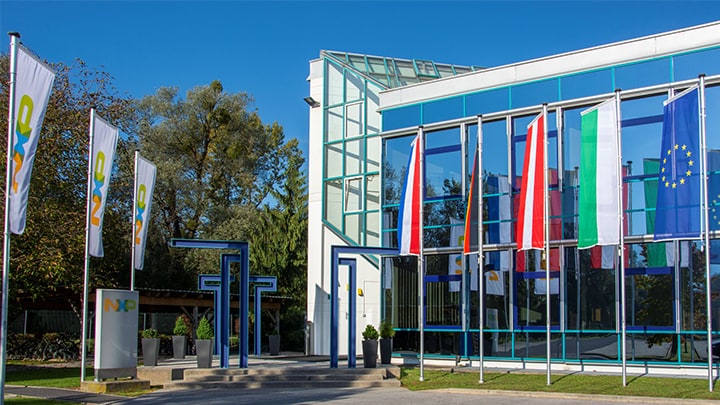NXP Austria has engaged in a significant European research and innovation initiative to develop
the next generation of secure and energy-efficient chips.
A Major Collaboration
The
IPCEI On Microelectronics
program addresses the innovation of new, more sustainable chips, power semiconductors, smart
sensors, advanced optical equipment and compound material. IPCEI stands for “Important Projects of
Common European Interest,” and the current consortium features 32 companies/RTOs from four EU
member states (France, Germany, Italy and Austria), as well as the United Kingdom. The IPCEI
allows the participating countries to support companies engaged in transnational cooperation
projects, thus maintaining and further expanding European competencies in the various technologies
while facilitating fast first industrial deployment. Putting a strong focus on dissemination and
spill-over, it also supports the positive development of the European innovation eco-system. NXP’s
participation includes sharing its expertise and leadership on advanced security chips for
trustworthy and energy-efficient solutions.

The Importance of Microelectronics
“Recent European initiatives, like the IPCEI on Microelectronics, are vital for European
technological sovereignty and quick economic recovery after shocks like the pandemic,” explained
Michael Jerne, Director of External Relations for NXP Semiconductors Austria, which is leading the
engagement. “NXP Austria’s IPCEI engagement has strongly positioned our company to play a far
greater role in the successor program, which is currently being set up to include multiple
European NXP sites.”
NXP’s Contribution: Intelligence, Security and Energy Efficiency
NXP’s research and innovation program at its Gratkorn, Austria site is exploring and applying the
latest artificial intelligence and machine learning (AI and ML) methods to improve system
performance and dependability for ultra-low power RF technology-based applications. Hardware-based
security concepts are a key pillar of such systems, and the company is hopeful that participation
in projects like IPECI will help boost the development of a new generation of highly secure ICs
for more sustainable transportation, smart mobility and the IoT in general.
 NXP Austria
NXP Austria
“With a specific emphasis on ‘first industrial deployment’ and the creation of positive spill-over
effects, the IPCEI goes beyond what we know from other European funded research programs,” said
Jerne. “NXP Semiconductors Austria is making significant contributions and our involvement will
help facilitate the expansion of our partner network and provide insights we can share with the
broader technology community.”
A Robust Public-Private Partnership
NXP’s Public Cooperative Programs (PCP) division coordinates publicly funded innovation and R&D
collaborations with academic, government, nonprofit and corporate partners. NXP’s PCP team manages
all operational, financial and legal matters, allowing technical engineers to focus on the
research and development.
The SEAMAL IPCEI project is funded by the Austrian Federal Ministry of Climate Action,
Environment, Energy, Mobility, Innovation and Technology, the Austrian Federal Ministry of
Digital and Economic Affairs, and it’s implemented by Austria Wirschafts Service (aws) and the
Austrian Research Promotion Agency (FFG). The IPCEI on Microelectronics is also funded by Public
Authorities from Germany, France, Italy and U.K.
-
To learn more about Security and Authentication please visit
here.
-
To learn more about Sustainability please visit
here.






